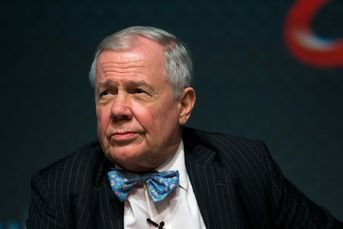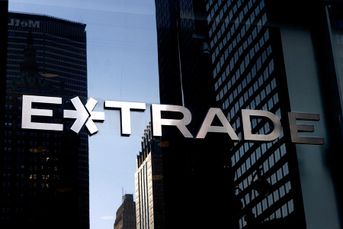Small-cap stocks unfazed by trade tensions

But an all-out trade war could change everything
Sometimes, you manage to get things half right, and that turns out to be all wrong. For example, you might be correct in assuming that the rope bridge is the best route across Casket Canyon. This would be wrong, however, if you overlooked an irritable gorilla on the other side.
Similarly, you might expect that small-cap stocks would be relatively immune to a trade war, since they tend to do most of their business in the United States. If a trade war triggers a broad market sell-off or harms the economy, however, your small-company stocks will prove little comfort.
Let’s start at the beginning: Small-company stocks have been on a tear this year. The Russell 2000 small-company stock index has gained 10.82% this year through Monday, according to Morningstar Inc., while the Russell 1000 large-company stock index is up 4.98%. And the Russell 2000 small-company growth index has soared 14.21%.
The rise of small-cap stocks makes sense. The tax cut passed in December seems not only to have ignited the stock market’s animal spirits, but the animal spirits of small-cap CEOs. Slashing the federal tax rate for corporations to 21% from 35% gave small companies extra cash for mergers and acquisitions, capital improvements, stock buybacks and increased dividends. They might even share some of that windfall with their employees — which would, in turn, stimulate the economy.
The National Federation of Independent Business Small Business Optimism Index increased in May to the second-highest level in its 45-year history, at 107.8. Expansion plans are the most robust in the survey’s history, and 19% of all small businesses were planning price hikes — the highest level since 2008. The survey found 47% reporting they were spending on new equipment and 16% improving or expanding facilities. (Despite the tax cut, 17% reported taxes as their biggest problem).
And so far, worries about trade hostilities have left small-cap stocks relatively unscathed. While the blue-chip Dow Jones industrial average has fallen 2% since Friday, when Mr. Trump threatened further trade sanctions on China, John Lonski, managing director and chief economist for Moody’s Capital Markets Research Group, noted that the Russell 2000 has gained 0.4%. “Thus far, they’re holding up nicely,” he said.
That’s all well and good. But investors may have assumed that small-company stocks would be completely immune from trade worries, as relatively few small-cap companies have international operations.
Unfortunately, there are three gorillas waiting at the end of this proposition. The first is that the trade wars have been relatively absent from the financial world since the 1920s, so there’s really not a recent example of how trade wars affect small-company stocks. The most recent one didn’t end well for small or large companies: The Smoot-Hawley Tariff Act of 1930 is widely blamed for accelerating the nation’s slide into the Great Depression.
Furthermore, there’s not much correlation between the level of U.S. trade as a percentage of gross domestic product and the relative performance of U.S. small-cap stocks, according to Jim Paulsen, chief investment strategist of The Leuthold Group.
“Correlation of changes is virtually zero — i.e., no correlation whether trade expands or contracts,” he said.
Small-company stock funds are economically sensitive, however; they produce their best results when economic growth is rising. And there’s a trade tie-in there, too.
“If there’s a global trade slowdown, it’s bad for all risk assets,” said Ben Phillips, chief investment officer at EventShares. “In my view, that’s a problem for small-cap stocks.”
Furthermore, most small companies can’t rely on disparate arms of the business to produce gains when other divisions are falling down. “A lot of small-caps are pure plays,” Mr. Phillips said. “They don’t have the same capacity as large companies do to adjust where they are investing their capital.”
Despite all the chest-thumping about trade wars, however, there still isn’t one — yet. In the absence of a trade war, the bullish case for small-cap stocks remains intact. Capital spending is ramping up, particularly in manufacturing and technology. Here again, the tax law has an effect: Not only do small-cap companies have more cash on hand, they can fully expense capital equipment as well.
Given the recent run-up in small-cap growth stocks, investors might be better advised to rebalance, rather than pouring more money into small-cap growth funds. (You can find the top 10 small-cap value funds here).
For ETF fans interested in small-cap growth who don’t have exposure to the sector, it’s hard to beat Vanguard S&P Small-Cap 600 Growth ETF (VIOG), which has just $426 million in assets, versus the iShares S&P Small-Cap Growth ETF, which has $6.3 billion in assets. Both track the same index, but the Vanguard offering has a lower expense ratio than the iShares ETF.
On the open-ended side, there’s Wasatch Ultra Growth (WAMCX), up 26.62% this year and 17.64% annually the past five years. It’s not for the faint of heart: It has big overweights in technology and health care, and its standard deviation tends to be higher than the average small-company growth fund the past three and five years.
Will there be an irritated gorilla at the end of the small-cap rally? There usually is. But for advisers whose clients don’t have a small-cap position, there may still be time to get in — provided clients are prepared for all outcomes.
Learn more about reprints and licensing for this article.








